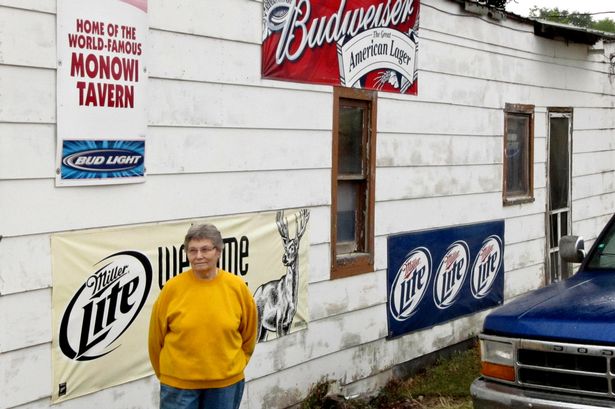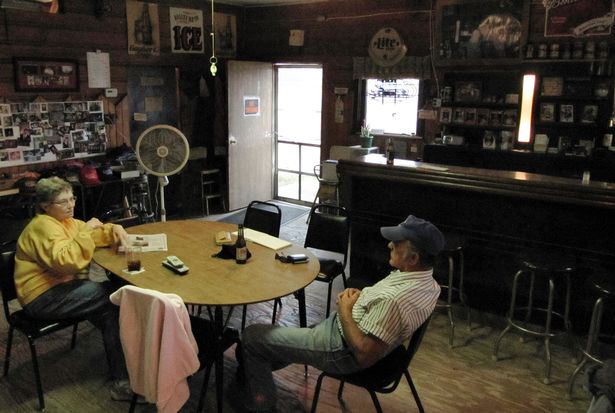Elsie Eiler runs the sole business in Monowi, Nebraska and is also the town’s only resident, as well as its mayor, librarian and postmaster. Monowi is officially the smallest incorporated town in the US
A particularly hard-working woman is the mayor, librarian, postmaster, and sole business owner of the smallest town in the US.
Elsie Eiler may be in her 90s, but she fully embraces the side-hustle culture more often associated with Gen Zs. The multi-jobbed Nebraskan has been holding down the fort as the only resident of Monowi for years.
Along with her husband Rudy, Elsie moved to the sparsely populated area about 90 miles northwest of Norfolk, near the South Dakota border, and set up the Monowi Tavern in 1971. Its nearest restaurants are more than a dozen miles away, but business was slow at first.
Rudy died in 2004, leaving Elsie to run the rest stop as a one-woman show. Slowly, over the years, the other remaining residents of the town either died or moved away until Elsie was the only one left.
READ MORE: Holidaymaker sends goodbye texts to family after getting trapped on FlixBusREAD MORE: ‘I worked five zero-hour jobs at once to save enough to travel’
Today her business is a well-maintained iceberg in a sea of crumbling buildings. Homes are slowly tumbling over and collapsing into the snow-covered ground of Monowi.
The town’s rapidly declining population has provided a silver lining for Elsie. As officially the smallest incorporated town in the US, Monowi has become something of a tourist attraction. Nowadays, business is booming, with small-town enthusiasts coming from far and wide to meet a woman who has taken on more and more responsibilities in recent years.
Not only does she welcome around 50 guests a day, cook them a delicious feast, and keep the restaurant looking spic and span, but Elsie also serves as mayor, librarian, and postmaster.
As the only resident in town, she must advertise mayoral elections with a sign she posts on her bar and vote for herself, as well as produce a municipal plan each year. Other duties include raising taxes to keep utilities running.
“It’s a bar and grill, I would call it. I do quite a lot of cooking the last couple of years. It’s a bar and a meeting place for everybody. There’s a toy box under the TV for all of the little kids that come in, and it’s just a community meeting I guess you would say,” Elsie told Nebraska Public Media at an event at the restaurant in 2021.
One regular customer is Boyd County Sheriff Chuck Wrede, who says the tavern is a meeting place for area police officers.
“We come here once a month and kind of have an intel meeting between the counties, and invite different people to come and discuss what we need to do and what things go on,” he explained.
Jeff Uhlir, who farms 20 miles south of Monowi, meets with other agricultural workers from the area to play cards at the tavern.
Despite working so hard long after most people have hung up their working boots and retired, Elsie doesn’t seem to be slowing down anytime soon.
“Each year I just renew my license and stay again. I mean, basically…I’m happy here. This is where I really – I want to be here, or I wouldn’t stay here,” she said.



